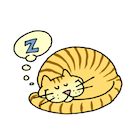Book Critique Writing: Play It Cool

Are you feeling stressed about that book critique assignment?
No need to worry. Here are the steps to creating a book critique you can be proud of.
What Is a Book Critique?
A book critique is different from a book report, which is a simple and straightforward summary of the book. In a critique, you may include a brief summary, but your main focus is to evaluate the book, offering your critical assessment.
Before You Begin
Your work begins even before you start writing, while you are reading the book. Take notes as you read on the main message, themes, and key ideas. As you go along, you may try grouping these ideas into sections and then writing your own thoughts about each section. Sometimes it helps to read other critiques of the book to give you ideas.
Introduction
Start with basic bibliographical information: the title and author. Next, state what the main message or thesis of the book is.
Summary
Write a brief plot summary, mentioning each of the author’s main ideas and the main characters. Do not try to cover every detail of the book in your summary. Keep it short and focus only on the elements that are most important. Back up any of your statements with facts and evidence.
Evaluation
Write your evaluation of the book. It may be effective to answer the following questions in your evaluation.
- Does the author make logical arguments?
- What parts did you like?
- Will the reader come to the same conclusion as the author, given the evidence presented?
- Did the author succeed in making his point?
- Does the book have emotional or logical appeal?
- Is the evidence presented still valid, or is some of it outdated?
- What is the author’s area of expertise?
- What major themes are introduced in the book, and are they successful?
- Is there any evidence that would support the opposite argument?
- Does the information presented in the book fit with your own understanding of the subject?
- How does the book compare with others in the same genre or written by the same author?
- Did the author interpret all the evidence in a way that is easy to understand?
- Does this book add clarity or significance?
- If it’s fiction, what was the most important scene in the story, and why?
Conclusion
Here is where you let the reader know whether you recommend this book and why (or why not). Include some positive and negative aspects of the book and compare it to others that are similar. Indicate whether or not you agree with the author’s conclusions. Include specific examples to back up your statements, referencing page numbers when necessary.
Revisions
Proofread carefully several times. Don’t rely on your spellchecker, as it might not catch everything. Be extra careful in checking the spelling of the names of the author, the characters, and the publisher, and that quotes are cited correctly. As you read, put yourself in the mindset of your intended audience to ensure that your critique makes sense, that you’ve used the right amount of quotes, and that your summary is adequate.
A book critique is a wonderful opportunity to engage with a text and give your opinion about it, so enjoy it. You will find that it’s not as bad as it seems.





